Stadia has launched if you have the Founder Edition, our unit and code came a little late but it's here and surprisingly it all seems to be working well. Note: Our Founders Edition was a personal purchase.
This new game streaming service from Google is powered by Debian Linux and the Vulkan API, so I've been rather keen to see what it has to offer. Keep in mind you will need a good internet connection for it and you do always need to be online, although it's supposed to keep your place for 15 minutes to help with drop-outs and changing devices.
Quite a rough start, as they were clearly sending out codes slowly in batches. Something which wasn't explained properly. However, every Founder should now have access with them moving onto sending codes for those with the Premier Edition next week. I do hope Google learn to communicate better in future.

For now, Stadia is supported in these countries: United States, Canada, United Kingdom, France, Italy, Germany, Spain, Sweden, Denmark, Norway, Finland, Belgium, Ireland and the Netherlands. As for games currently available, it's limited with only 22 available although more are supposed to be coming before the year is up. You can see a list in this previous Stadia article.
While Google state that you need Chrome to play Stadia, that's not quite true. Testing on Manjaro Linux, I've got it running with Destiny 2 working fine in Chrome, Chromium, Brave and Opera.
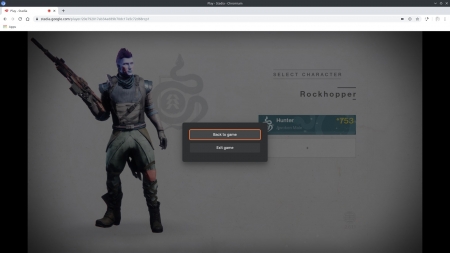
Pictured: Stadia with Chromium on Linux
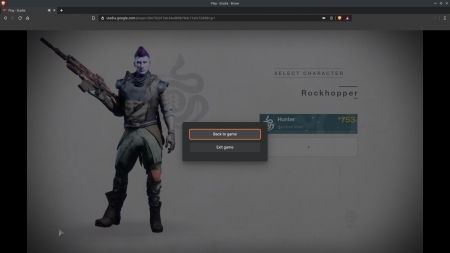
Pictured: Stadia with Brave on Linux
However, for Opera, the Content Security Policy doesn't even let you click the Sign In link. I used a plugin to turn it off for testing (not recommended), which allowed me to get further but then Stadia tells you to install Chrome. However, in this case using a User Agent Switcher did then allow Opera to work!
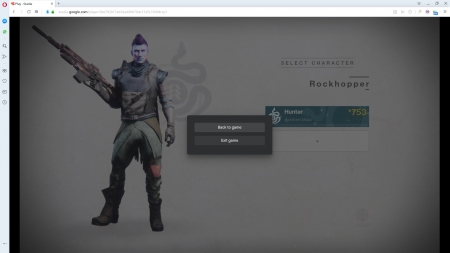
Pictured: Stadia with Opera on Linux
I also tried it in Firefox with a User Agent Switcher, where I was able to at least get the store to load and interact with the very basic UI but games wouldn't load. No amount of tinkering and disabling things seemed to help for Firefox.
My main testing has been done on my desktop, attached directly to the router with a cable. With a Virgin Media internet connection that gives around 360Mbps down and about 36Mbps up (Speedtest - while in use it varies of course). You can see a video of it in action below:

Direct Link
Also slightly amusing that as I spawned into the game, there was someone I knew standing there (hi Marc).
So far, other people using the net to stream video and play online games all while I've been testing hasn't phased it. I had a single disconnection, which in the space of about 10 seconds sorted itself out. I've always been a huge streaming sceptic...but not so much right now.
What I'm perhaps just as impressed by is performance over wireless. Testing using a rubbish Kubuntu laptop, across the house and down a level right at the back. Wireless speed there gave me about 50Mbps down, so putting Stadia into the "Limited" mode for 720p, even there the experience was also very good. I was fully expecting there to have a ton of input lag, but it felt about the same as my PC hooked directly to the router. All while someone else was streaming video and playing an online game elsewhere in the house. You can see a poor quality quick video test of that here.
Onto the Stadia Controller, priced around £59 by itself it's not the cheapest. However, the build quality seems good and it does feel very nice. Far nicer than the Steam Controller or the Logitech F310. Perfect fit too, with a really nice finish. Smooth on the front, a little rough on the back for some grip. The Stadia Controller also has a dedicated button for the Google Assistant, although that's not actually online right now. You don't need it though! Mouse and Keyboard work great, the Steam Controller also works when paired with SC Controller, and the Logitech F310 was also plug and play. Simply no need to pay out for it.
I think it's important to understand what Google have achieved already with Stadia is quite significant. Load up a browser and play a AAA game on Linux, macOS and Windows with only a tiny amount of loading and no sitting and waiting for 50GB of updates. Compared to a lot of experiences with new games on Steam, it almost feels a little magic.
However, at least speaking for me personally, I don't think this will be replacing a locally installed game any time soon. While the input lag was somewhat minimal, playable and quite fun it was just enough to show me that it's not something I'm going to be spending lots of money on extra games. Barely though, I have been seriously impressed with it. If they manage to bring it down a little more, it would be ridiculously good.
The service offered currently is also incredibly basic. Most things outside of playing a game require the Stadia mobile application, as the in-browser UI is laughably bare-bones. Not only that, but they're going to need something big to really hook anyone in and keep them. There's no "killer app" for Stadia right now and their one exclusive game with Gylt isn't going to be turning any heads.
Stadia Pro also doesn't feel at all worth it. 4K that has already been shown elsewhere to not actually be fully 4K in some games, as it's down to the developer and only supported on the Chromecast Ultra, plus HDR and Surround Sound which aren't yet supported on PC as well. The amount of games you get with Stadia Pro is also going to be ridiculously limited when other services will be practically doing the "Netflix of games" style. Google will definitely need to give Stadia Pro a big boost.
From a standard user perspective, it does work fine on Linux. Shockingly well too for the most part. I fully expected there to be all sorts of issues and it's fun to see the normal Linux desktop sit alongside Windows and macOS as a supported gaming system for something so big. That's my main takeaway from the testing done.
Thinking specifically about Linux gamers for a moment there's multiple people who could enjoy this. There's likely going to be plenty of AAA games on Stadia, that will never be ported to the Linux desktop and also never work in Steam Play Proton. This includes those with extra layers of DRM, especially true right now for multiplayer titles with various different forms of anti-cheat. Stadia certainly could end up plugging a big gap for Linux gamers there.
That's only from a player perspective though, there's a ton of other issues that come with it I've mentioned in other articles. Games as a hosted service, with no ownership that can be taken away at any time is a genuine concern worth thinking on. As a pretty stark reminder of that, Destiny 2 went entirely offline today for multiple hours (all platforms). Not the fault of Stadia, sure, but it's making a point about relying on things in the cloud. Google sucking up even more data on you I'm sure plenty of people will be concerned about. Like the Stadia Controller with the built-in microphone to speak to Google—somewhat creepy or handy? You never do truly know if it's listening or not. That said, if you're like me and you have your Android/smart phone always by your side it's the same issue there so perhaps not quite as big a deal to certain people.
Bandwidth use is also a going to be a problem for plenty of people. Testing Stadia on the "Balanced" setting, which is supposed to give 1080p with an hour playtime using vnstat as the monitor it sucked away almost exactly 10GB. Let's say you play only 3 hours a day across a week, that's over 200GB. While I don't have a data cap, I've looked around and plenty really do and Stadia can easily blow through it.
Google also need to, rather badly, work on their communication and constant overselling of the service. It wasn't ready, clearly and still isn't in a lot of ways. They announced lots of shiny things, that just aren't there right now. We're talking Wireless controller on PC, 4K on PC, Google Assistant, State Share, Stream Connect, YouTube integration, Family Sharing, an almost nonexistent PC interface and even the Buddy Pass system isn't yet live. Stadia launched with the bare minimum to be called a service.
If Stadia does succeed, gaming will be massively different to what we see today. I can't even begin to imagine how indie games would adapt and you can bet more publishers would opt for their own subscription services to help counter it. They do have a lot of competition coming as well, even Amazon are said to be launching their own game streaming service next year. What of the Steam Cloud Gaming rumours too? Too early to get fully invested into Stadia when it's so limited.
Keep an eye on our Twitch Channel, as our streamer will be taking a look tomorrow.
If you’re interested in Stadia and want to see more about it here, or you would like something very specific tested do let me know in the comments.
Your argument was that VR has been around a few years. Think a little bit more outside your own situation. For some people, they weren't in a position then to save specifically for VR hardware and may not be right now.I think you missed my point entirely.
What's your point then? :/
I read that as "saving is no argument, because might need the money elsewhere."
Then this as well:
Shit can always happen, sure - but you can still save some money. That's what I did. I don't have much money to waste, but $10 a month? If people can't put that much money away each month, they have bigger problems than a hobby like gaming.I know plenty of people who can save £10 a month, but not to then go and spend that on VR hardware. This is part of my point. You can save 10, 30, 50 a month AND need it for other things.
~£350 for a second-hand Vive is still a big cost, that's without going up to the Index at what close to £1000? That's on top of getting your PC to a standard of power even needed for VR in the first place, on top of living expenses, saving for a rainy day, saving for an emergency and so on.
I am/was in that situation. I didn't have much money back then, I don't have much money right now. I put some money aside for 3 years and put the priority on a VR headset, because I really really wanted one.
Could I use that money for other/more important things? Maybe, but that's no argument against saving for something you really want. I couldn't afford an Index right now.
But that's what saving is for. Otherwise you literally couldn't put any money ever into your hobby. How else do you justify spending money on games?
I am/was in that situation. I didn't have much money back then, I don't have much money right now. I put some money aside for 3 years and put the priority on a VR headset, because I really really wanted one.Maybe I'm just tired and not thinking straight and the costly leak in my roof has gone to my bank balance :P
Could I use that money for other/more important things? Maybe, but that's no argument against saving for something you really want. I couldn't afford an Index right now.
But that's what saving is for. Otherwise you literally couldn't put any money ever into your hobby. How else do you justify spending money on games?
Now according to VR owners, what I need is to get a better job, or not eating something else than rice or bananas so I can get the money to play any new possible Valve game from now.It’s not like Valve owe you anything. They’re putting out a product on a specific platform for the consumers who are interested in that product, platform and price point. It’s up to anyone to decide whether they want it and can afford it. You don’t see me bitching at Tesla for not being able to afford their cars.
We’re talking video games here, not affordable housing or health services.
Strangely, such games which are a more natural fit for Stadia, aren't even represented on the initial launch.
Last edited by Shmerl on 22 Nov 2019 at 7:44 pm UTC
As before, I'm looking forward to Stadia pushing more developers to work with Vulkan and Linux, and speed up the demise of DirectX, Metal and GNM lock-ins. But I'm not going to use Stadia itself, unless it's for some on-line only games that are such by design, like MMORPGs and etc. Then I might consider itYeah, not only would it be a presumably much more effective solution against bots and cheaters, but it would be a great way to not have to worry about computer performance in crowded instances. I’m curious to see if any MMO companies make the switch to a Stadia-only infrastructure. I suppose there would need to be a convincing userbase first for them to make that leap of faith.
Strangely, such games which are a more natural fit for Stadia, aren't even represented on the initial launch.
Thinking specifically about Linux gamers for a moment there's multiple people who could enjoy this. There's likely going to be plenty of AAA games on Stadia, that will never be ported to the Linux desktop and also never work in Steam Play Proton. This includes those with extra layers of DRM, especially true right now for multiplayer titles with various different forms of anti-cheat. Stadia certainly could end up plugging a big gap for Linux gamers there.
This is the part I don't like. Devs are happily porting their engines to Vulkan (and most likely their games already have a native Linux version in order to run on Stadia), but are not willing to release them as normal offline versions.
To put it into perspective imagine Cyberpunk 2077 running under Vulkan and released on GOG for Windows DRM-Free, but not on Linux, not a very pretty sight.
Not blaming Stadia or Google here, just an observation.
Last edited by Avehicle7887 on 22 Nov 2019 at 8:06 pm UTC
Key thing is market share though, the Linux desktop as we all know is a niche. Stadia possibly (quite likely) already has more and a truckload of money they're obviously willing to pump into the hands of developers and publishers to get the games on their service. Valve's doing the opposite, going around them entirely with Proton. Either way, we get multiple ways to play on Linux across multiple devices now.Thinking specifically about Linux gamers for a moment there's multiple people who could enjoy this. There's likely going to be plenty of AAA games on Stadia, that will never be ported to the Linux desktop and also never work in Steam Play Proton. This includes those with extra layers of DRM, especially true right now for multiplayer titles with various different forms of anti-cheat. Stadia certainly could end up plugging a big gap for Linux gamers there.
This is the part I don't like. Devs are happily porting their engines to Vulkan (and most likely their games already have a native Linux version in order to run on Stadia), but are not willing to release them as normal offline versions.
To put it into perspective imagine Cyberpunk 2077 running under Vulkan and released on GOG for Windows DRM-Free, but not on Linux, not a very pretty sight.
Not blaming Stadia or Google here, just an observation.
How did they make Destiny 2 run if protondb shows it as borked? Everyone says that Stadia is on Linux but it looks like there are only Linux servers. The game is somehow streamed from Windows or am I missing something?
Mine are only bits and pieces but I am convinced that they actually ported the games to Linux for them to work. It seems rather odd to me that they'd emphasize so much about Vulkan and Debian (especially Vulkan).
Google didn't reveal much info how it works under the hood and the game devs are also a bit tight lipped, I did [find this](https://www.pcgamer.com/ubisoft-ceo-says-cost-of-porting-games-to-google-stadia-is-not-that-high/) though, "porting games to google stadia" sounds weird. And this [regarding RDR2's engine](https://gtaforums.com/topic/914375-rdr2-pc-discussion-speculation/page/13/?tab=comments#comment-1070509053)
One might ask "if they ported their games to Linux why not release a normal version?". a few possibilities:
Clients such as uPlay, Origin, Rockstar don't have a native client.
Their highly adored and banal DRM Denuvo doesn't seem to have a Linux version (despite their games get cracked anyway).
And (even though they make millions every year) - Additional support costs for a niche platform
Last edited by Avehicle7887 on 22 Nov 2019 at 10:19 pm UTC
Testing using a rubbish Kubuntu laptop, across the house and down a level right at the back. Wireless speed there gave me about 50Mbps down
Dear lord, 50Mbps? I'm sitting at my desk right next to my router and I only get 20 down, which is still better than the norm. That is, by the way, the main reason Stadia will fail: most people don't have amazing internet.
How did they make Destiny 2 run if protondb shows it as borked? Everyone says that Stadia is on Linux but it looks like there are only Linux servers. The game is somehow streamed from Windows or am I missing something?If it's borked due to DRM or anticheats then it's not a problem for Stadia+Wine.
Since Valve locked the only HL official game in 10 years behind really expensive hardware, both PC and VR headset (first world kids speaks about 200$ headsets on Craiglist, Amazon and Ebay, so sad the rest of the world outside of US have to pay taxes and shipping), this is a good chance of Stadia to shine, Stadia offers PC gamers the chance of playing the latest games on any crappy PC, with a crappy keyboard and mouse or controller.I think you are being unfair to Valve. It seems like they have production issues, and that's partially why it costs so much for Index. For Half Life, they stated in interview that scaling Half Life Alyx down to flat screens would be very hard and risk watering down the unique experience they created with VR. I don't think they were lying and using VR to sell Index. They also stated the thought of making Half Life 3 was very daunting and they started Half Life Alyx first as a VR experiment and second as a Half Life game. It absolutely sucks though. This has been the first time I've wanted to play VR and I can't afford. It looks really good.
On the topic: This is more or less what I expected. I would be supporting Stadia 100% if it wasn't for the fact I am convinced it will lead to a future where streaming overtakes other ways to play games i.e reducing choices. You can already see the bad signs of it already, we've had EGS with exclusivity and now Stadia has one exclusive game too. And that's just the tip of the ice berg of the implications I believe Stadia will have. Call me cynical or whatever but I know from experience where these things go...
Stadia launched with the bare minimum to be called a service.
This reminds me of an actual strategy for software development and release, "minimal marketable product" (see e.g. https://disciplinedagiledelivery.com/defining-mvp/ ).
I really don't understand the appeal of game streaming, ain't really any savings for the consumer in the long run, especially considering how expensive internet tends to be in the US. My current PC cost me 2-3 months worth of a half decent internet plan
Germany is said to have bad internet conditions. I've got 50 Mbit/s for 30 bucks, no data cap. So my next PC will cost me 2-3 years(*) worth of the internet plan, and, way more important: I don't even need to pay anything additional for internet if I wanted to use Stadia.
(*) I really wonder what your internet and your PC cost if it's months for you...
Last edited by Eike on 23 Nov 2019 at 9:15 am UTC
[Google Stadia Controller Teardown.](https://www.youtube.com/watch?v=GBcSKgqbrBg)
I know that for a lot of you, you don't care about that kind of thing, but I'm a ginger my skin comes off really quickly and like most gingers I have a fairly acidic sweat. So my controllers DO get grimy and full of gunk relatively quickly.
The reason why I always buy my controllers in pairs is precisely because I have to pop'em open to clean them.
And if I have to take a dremel to the seams of its shell to crack it open because you made your clips so fucking thick that they are unpushable, then you messed up your internal design.
Even more of a shame the people who made the PCB and chose the motor placements DID give a damn about making it easy to put it back together.
And the battery is even using a regular 3-pin connector for easy replacement. But what's the fucking point if it's so fucking hard to crack it open, that I need a heat gun and fucking dremel.
The rest of the article is great Liam I'm not questioning that but really the Stadia controller is NOT okay on that front.
Last edited by TheSyldat on 23 Nov 2019 at 9:20 am UTC

do I need to say anything else?What's your "point" here ?

sense when have a controller had any identity what so ever? especially a gender one, I mean how far is this "identity bs politcs" going? it doesn't make sense at all, it never did in the first place...and when it comes from companies it's always insincere Virtue signalling bs anyways
no wonder google and other companies faill if they only care about being woke
Last edited by ahjolinna on 23 Nov 2019 at 9:37 am UTC
Last edited by TheSyldat on 23 Nov 2019 at 9:42 am UTC
sense when have a controller had any identity what so ever?
Well, I guess they conceive something with saying that, but it's not obvious to me what it is. So, as you seem to be interested in that topic: What is is Google is thinking of here?
Last edited by Eike on 23 Nov 2019 at 11:42 am UTC


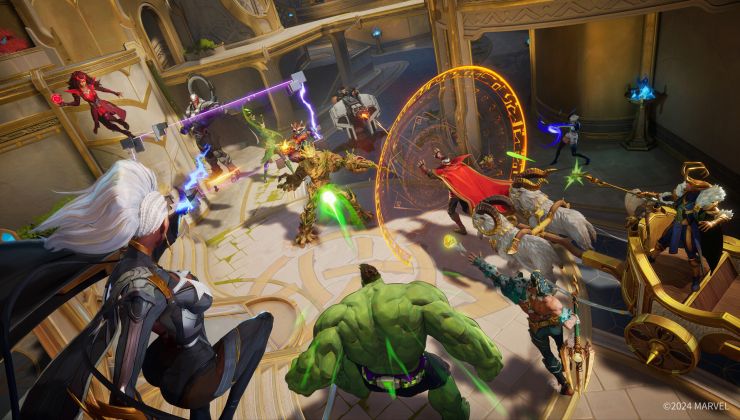
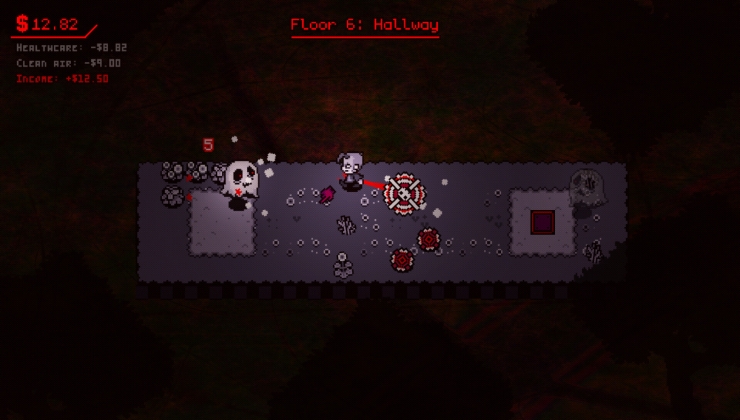








 How to set, change and reset your SteamOS / Steam Deck desktop sudo password
How to set, change and reset your SteamOS / Steam Deck desktop sudo password How to set up Decky Loader on Steam Deck / SteamOS for easy plugins
How to set up Decky Loader on Steam Deck / SteamOS for easy plugins
See more from me